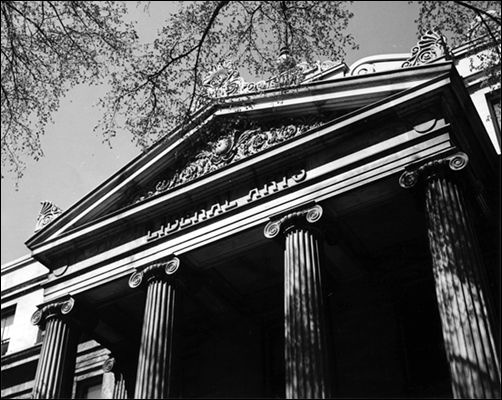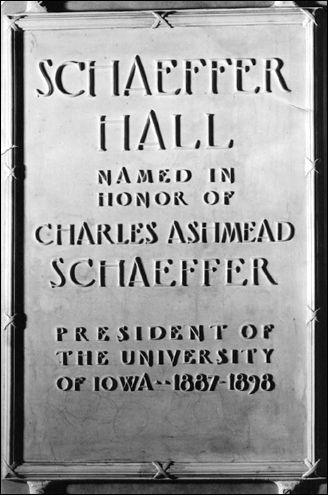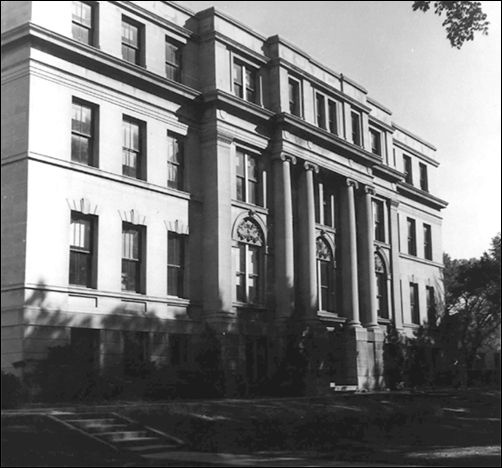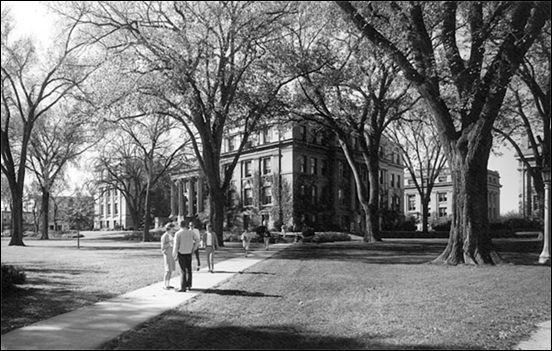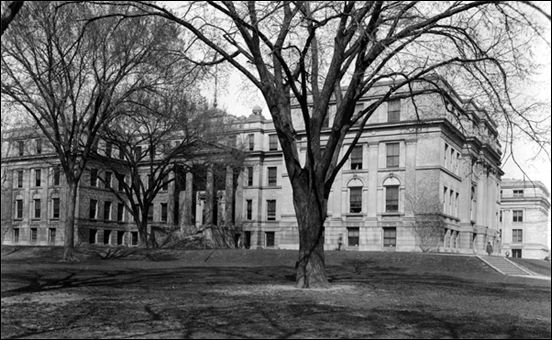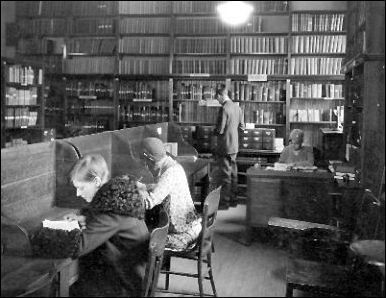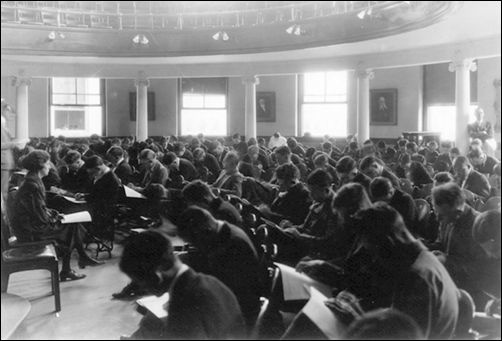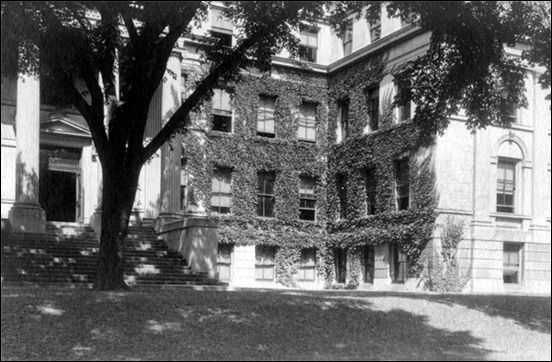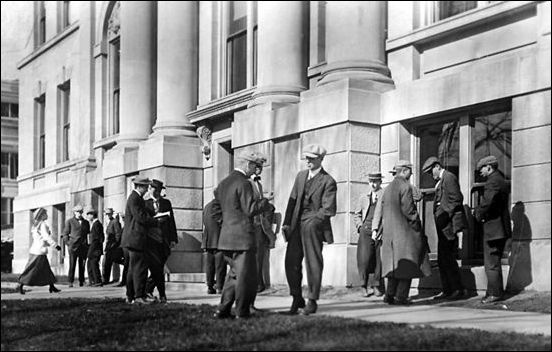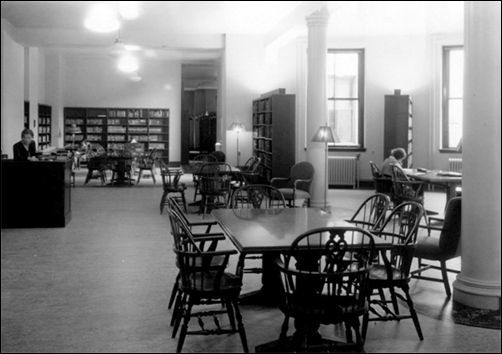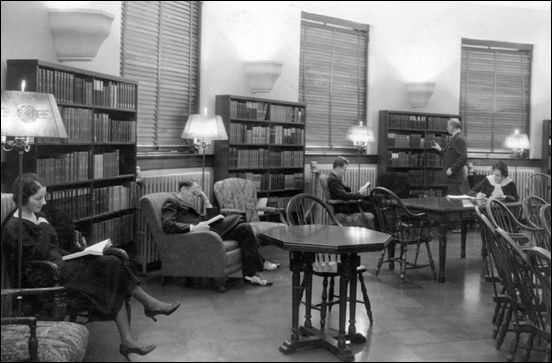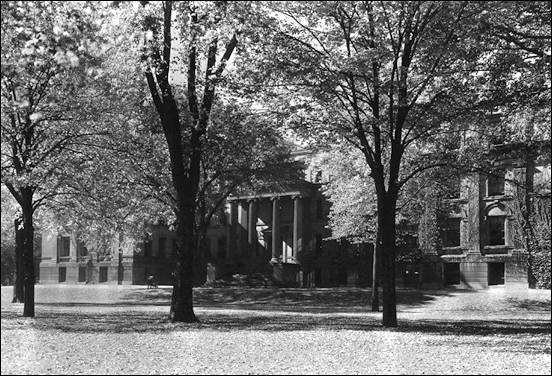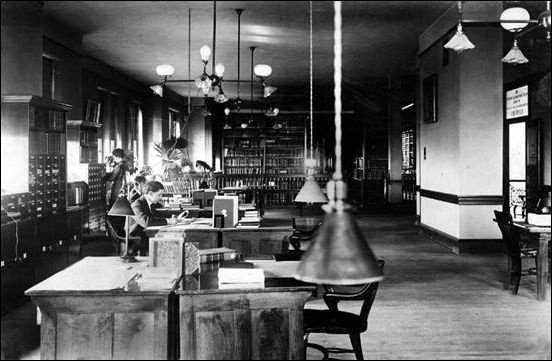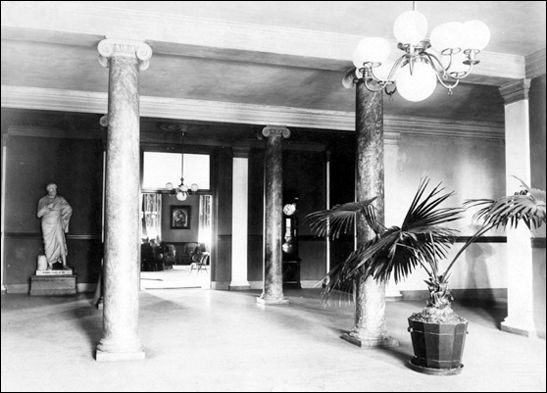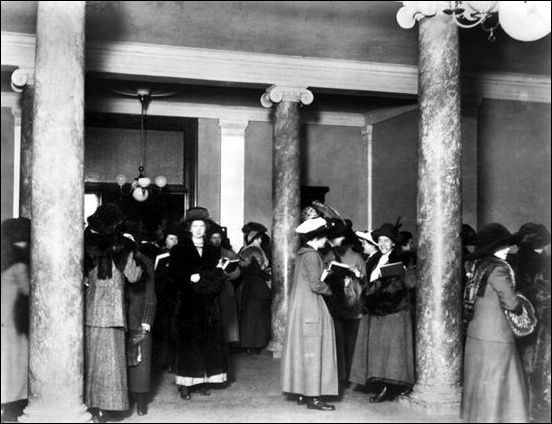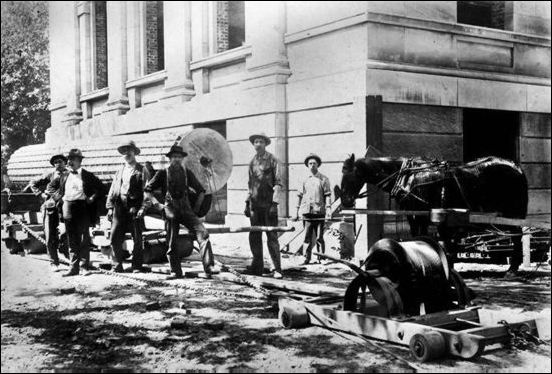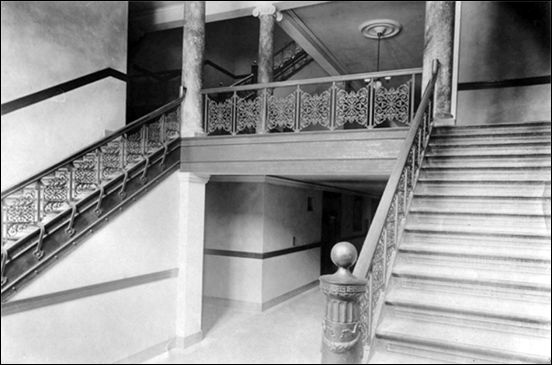Main navigation
Although liberal arts education had been offered since the university's founding in 1847, the College of Liberal Arts came into existence only at the dawn of the new century.
In 1900–01, the University of Iowa reorganized around an innovative structure called "the college." Within the university, colleges were established to nurture disciplinary areas (later formalized as departments) that were responsible for teaching and scholarship in specific subject areas.
George MacLean, president of the university from 1899 to 1911, "deserves to be called the father of the modern University of Iowa," according to Stow Persons, emeritus professor of history and author of The University of Iowa in the Twentieth Century: An Institutional History. When MacLean arrived on campus, the administrative structure in place included six "departments" (Collegiate, Law, Medical, Homeopathic Medical, Dental, and Pharmacy) with a hospital attached to the medical departments. The Collegiate Department, by far the largest unit of the university in 1899, was the precursor of the modern College of Liberal Arts. It offered undergraduate and graduate work, with four courses of study: classical, philosophical, general scientific, and engineering. Within each course of study, the student took prescribed courses in the freshman and sophomore years and electives in the upperclass years.
President MacLean introduced a new academic structure to the University of Iowa that has been remarkably stable for the past century. The Collegiate Department became the College of Liberal Arts, one of seven colleges established in 1900–01, along with the Graduate College and five professional colleges. Eventually, other colleges evolved from Liberal Arts: Engineering in 1905, Education in 1913, and Commerce (now Business) in 1921.
In the academic year 1904–05, the nineteenth-century "courses of study" were replaced by the departmental major, which still survives. Students were, according to the university bulletin for that year, required to undertake "a major study in some one department, extending through the [junior and senior] years." The first year and part of the sophomore year were devoted to general education courses, and all students were required to take courses in English, foreign language, social sciences, and natural sciences and mathematics. The General Education program, completed by all students in the College, still includes courses in all these areas.
"It would be hard to overestimate the general significance of the new organization for the College of Liberal Arts," Persons writes. From the areas of instruction that existed in 1900, most consisting of a single professor, semi-autonomous academic departments gradually emerged. The deans controlled budgets and had a say in faculty appointments, but the substance of what was taught and the research undertaken was under the control of the departments. A new university official emerged, the head of department, who could exercise extraordinary power to shape the department and determine its academic standing. The heads were appointed by the dean but served indefinitely, some for decades: Seashore in psychology and philosophy; Shambaugh in political science; Calvin in geology; Macbride in botany; Stewart and Van Allen in physics; Schlesinger in history; and Mabie in speech. These department heads had a tremendous hand in making the College of Liberal Arts what it is today.
The college changed its name to the College of Liberal Arts and Sciences in 2001.
Sources for further reference
Sources for further refence
- Clarence Aurner, History of Education in Iowa
- John Gerber, A Pictorial History of the University of Iowa
- Stow Persons, The University of Iowa in the Twentieth Century: An Institutional History
Deans of the College
Current (2021-)

Sara Sanders, PhD, MSW
Past deans
Past deans of the college

Steve Goddard
Dean, 2019–2020
Professor of Computer Science

Chaden Djalali
Dean, 2012–2018
Professor of Physics & Astronomy

Linda Maxson
Dean, 1997–2012
Professor of Biology

Judith Aikin
Dean, 1992–1997
Professor of German
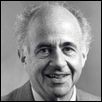
Gerhard (Jerry) Loewenberg
Dean, 1984–1992
Professor of Political Science
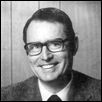
Howard Laster
Dean, 1977–1984
Professor of Physics & Astronomy
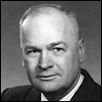
Dewey Stuit
Dean, 1949–1977
Professor of Psychology
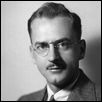
Earl McGrath
Dean, 1945–1948
Professor of Education
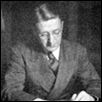
Harry Newburn
Dean, 1941–1945
Professor of Education
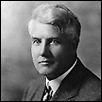
George Kay
Dean, 1917–1941
Professor of Geology
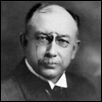
William Wilcox
Dean, 1909–1916
Professor of History
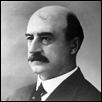
Laenas Weld
Dean, 1907–1909
Professor of Mathematics
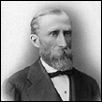
Amos Currier
Dean, 1900–1907
Professor of Latin Language & Literature
Founding faculty of the college (1900-1901)
In 1900–01, "departments," as we know them today, did not yet exist, nor did the departmental "major." The University Bulletin for 1900–01 lists professors in 19 disciplinary areas—one professor per area, except in Greek, where there were two professors. Some areas had assistant professors, bringing the professorial faculty to 28, two of whom were women.
These faculty are listed in the order that their areas of instruction and courses were listed in the 1900–01 Bulletin. Three of these individuals served as dean of the College, and five campus buildings bear the names of faculty listed here:
Animal morphology and physiology
- Professor Gilbert Houser
Botany
- Professor Thomas Macbride
- Assistant Professor Bohumil Shimek
Chemistry
- Professor Launcelot Andrews
Civil engineering
- Professor Alfred Sims
- Assistant Professor Charles Magowen
English
- Professor Clark Ansley
- Assistant Professor Alice Young
French language and literature
- Professor Frederic Van Steenderen
Geology
- Professor Samuel Calvin
German language and literature
- Professor Charles Wilson
Greek language and literature
- Professor Arthur Fairbanks
- Professor Leona Call
History
- Professor William Wilcox
Latin language and literature
- Professor Amos Currier
- Assistant Professor Franklin Potter
Mathematics
- Professor Laenas Weld
- Assistant Professor Arthur Smith
Pedagogy
- Professor Joseph McConnell
- Assistant Professor Frederic Bolton
Philosophy
- Professor George Patrick
- Assistant Professor Carl Seashore
Physics
- Professor Andrew Veblen
Political science
- Professor Benjamin Shambaugh
Public speaking
- Professor Henry Gordon
Sociology and political philosophy
- Professor Isaac Loos
Zoology
- Professor Charles Nutting
- Assistant Professor Henry Wickham
Historical visual tour of Schaeffer Hall
In October 1897, the Board of Regents announced a competition for the design of the new Collegiate Building. Instructions to the architects specified that the building must be fireproof and must cost no more than $150,000 but otherwise gave wide latitude in matters of design. Secretary William Haddock received proposals from twenty-two architects, eight of whom he asked to resubmit plans, looking for, in his words, "a good square turn of Iowa Renaissance." The Board hired as judge Henry Van Brundt of Kansas City, one of the architects of the 1893 World's Fair. Van Brundt chose a scheme in the grand style of the exhibition by the Des Moines firm of Proudfoot, Bird, and Rawson and recommended that the regents locate the new building east of the established axis then running north and south from the Old Capitol. Evidence suggests that this was part of his plan to group four architecturally similar buildings around the Old Capitol, forming what would come to be called the Pentacrest.
Photographs used on this webpage were provided by the Kent Collection, Special Collections Department, University of Iowa Libraries.
